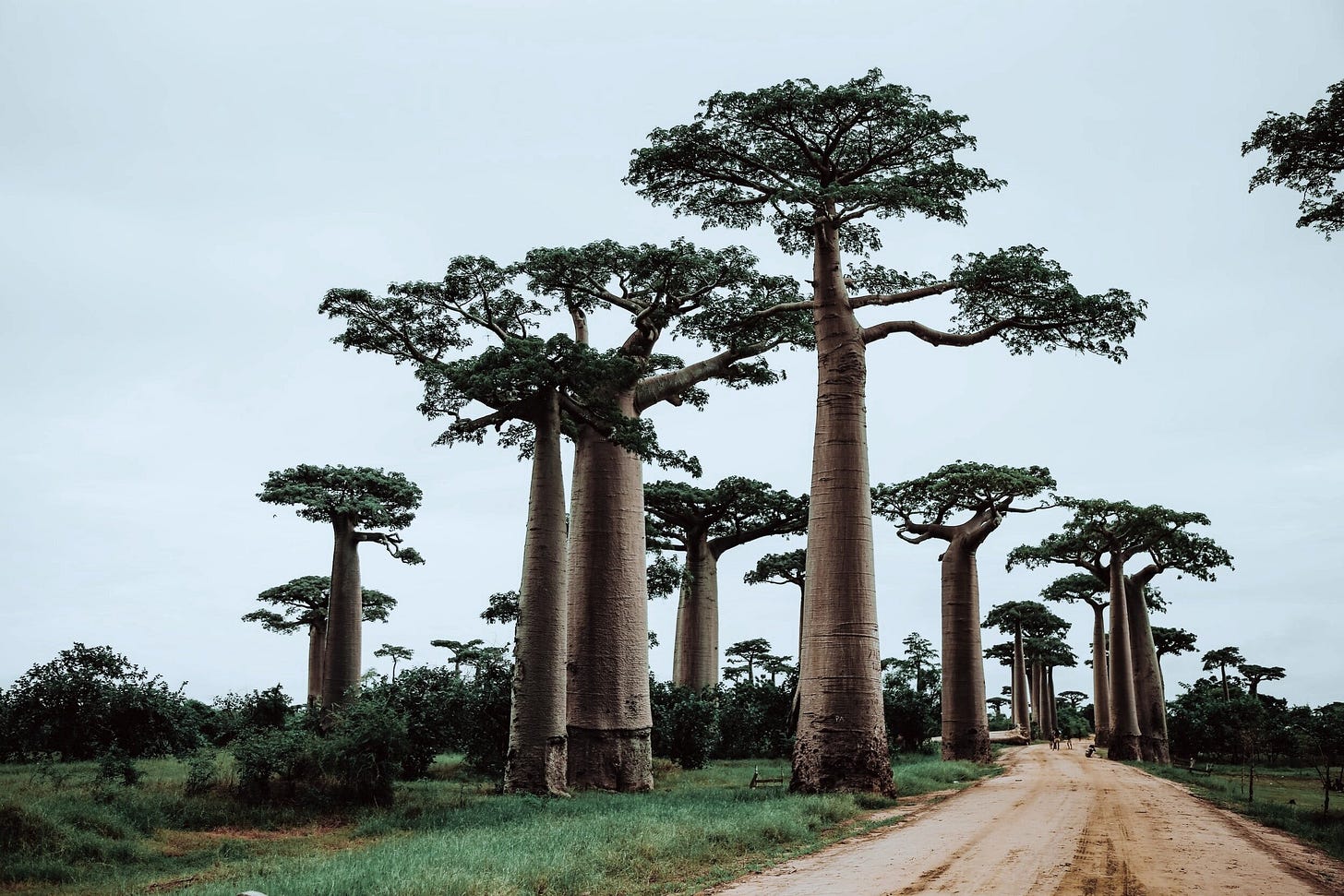Madagascar: The World’s Forgotten Island
ByValimbavaka Raherimananjara
Located in southeast Africa, Madagascar is a biodiversity paradise with 90% of its fauna and flora being endemic. Having developed in isolation, it is known for its beautiful white sands, tropical forests, unique geological formations, being the world's only home to lemurs and being the world's leading producer of vanilla. Thus, the nation of "moramora" or no rush, with its rich cultural heritage, is simply a dream destination for those who love to travel. I wish I could dwell on just the positives, and continue to describe Madagascar as the paradise that it is. Unfortunately, I can't turn a blind eye to the harsh reality that my fellow country people continue to go through. Like most African countries, Madagascar is a country where unemployment is rife and young people are deprived of their basic rights to food, education and health.
The world knows very little about my country. When people ask me where I am from, they have no idea where Madagascar is, or at best, identify it under the animated movie "Madagascar", which I would say does not reflect our reality. Did you know that my island, unlike other African countries, is the 5th most cyclone-affected country in the world, affecting on average 700,000 people each time? According to UNICEF, it is the most vulnerable country to climate change and has the worst access to water and sanitation in the world. Known for its abundant natural resources, it might also seem incredible how Madagascar can rank as the 4th most chronically malnourished country in the world. About 1.5 million Malagasy are currently starving to death due to famine in the south of the country. The scale of the humanitarian crisis in Madagascar is therefore very severe, but unfortunately, the country remains "the world's forgotten island". At the level of the African community, Madagascar is often the most neglected country, simply because it is an island. In other words, its isolation is its handicap. Indeed, its geographical location gives it little geostrategic interest for most journalists, donor countries and organizations. With no neighbours on its borders and no terrorism, Madagascar does not experience major conflicts. It, however, has no intersection of trade routes, and no large oil reserves. As a result, the lives of 92% of Malagasy living in extreme poverty are neglected on the world stage because the island is not strategically important, as compared to other African countries, to merit much-needed development assistance.
On an economic level, Madagascar is a member of both the Common Market for Eastern and Southern Africa (COMESA) and the Southern African Development Community (SADC), however, these memberships have yielded little benefit to the economic prosperity of the country. Madagascar's membership in these free trade areas can be beneficial to it as it provides a competitive advantage in attracting investors over non-member states. However, in terms of economic power on the African continent, Madagascar's industries and SMEs are not strong enough to compete in the southern and eastern region. Not only does it have difficulties in acquiring market shares within these zones, the products that the country exports are also not diversified and are unprocessed, and therefore have low added value. Thus, Madagascar's integration into SADC and COMESA is presently more harmful than beneficial and creates unhealthy competition for local producers. Given the standard of living of the Malagasy people, they are attracted to products from COMESA, which are cheaper because they are exempt from customs duties, whereas Malagasy entrepreneurs have to pay higher taxes to market their products. How can local industries and entrepreneurs strengthen themselves if their products are hardly bought on the local markets? And how can we expect them to create more jobs for the local population if everything that is bought is produced elsewhere? Indeed, Madagascar should not close itself off economically, however, "economic patriotism" should be privileged before the policy of free trade by putting forward the "Vita Malagasy" or Made in Madagascar policy. Also, the country must improve the quality of its productivity by diversifying its products, and focus on the conquest of new markets.
More so, Covid-19 has made the economic situation direr. The countries with which Madagascar has the most trade links are those most affected by the pandemic, such as, China, the US, France and Italy. So, not only is Madagascar already facing high transport costs, making exporting companies less competitive on the international trade scene but exports and tourism - key to the country's economy - have declined drastically in 2019 and 2020.
Regardless of Madagascar’s economic shortcomings, young Malagasy have been committed to helping their community thrive, especially during the pandemic. This is the case of Joan Razafimaharo, co-founder of the “Solidarité Madagascar” initiative, who has managed to deliver 3,600 donations to vulnerable people in five cities in Madagascar. Hanta Tiana Rajaonarisoa, the founder of Flore Aroma, manufactured hydroalcoholic gels at reduced prices to protect the public and health workers. In the same vein, Tanjona Raveloson creates and sells visors at affordable prices to help Malagasy people protect themselves against the virus. Also, my fellow volunteers at Teach Homeless Kids in Madagascar have been kind enough to offer their support to child beggars, to protect them and their families from the virus.
The actions taken by these young Malagasy is proof that young people can become critical actors of development in Africa if allowed to develop their talents and be part of the decision making process. Also, it is important to create platforms where young Africans can exchange ideas with each other, be listened to and supported. As Bernet Ravelomanana, a young statistical engineer expressed, Malagasy youth are not only immobile but also very disconnected from their brothers and sisters in the continent to the extent that they are not aware of the opportunities available to them and how their actions can impact Africa’s development. The words of Jimmy Ranitratsilo - Madagascar's representative of the Youth Charter within the African Union- regarding prioritizing pan-African friendship for a united and developed Africa, holds. Young Africans have to be given room to become real advocates for development at the national, regional and international levels. This way, they will be equipped with the relevant tools to make a sustainable impact in their home countries and the continent as a whole.
Valimbavaka Raherimananjara is a 24-year-old native of Madagascar who has lived most of her life in the capital Antananarivo. Having dreamed of becoming a chartered accountant since she was a child, she studied finance and accounting at the National Institute of Accounting Sciences and Business Administration in Madagascar (INSCAE Madagascar) and at the University of Poitiers in France. She currently holds two Masters degrees in accounting, management control and auditing, as well as two Masters of Research in management sciences. While doing these Masters, she worked full time as an accountant and corporate financial auditor in an audit firm in Antananarivo.
In 2019, she obtained the Chevening Scholarship, which allowed her to complete a Master's degree in Public Administration and Public Policy at the University of York. Having graduated in January 2021, Val is currently a public policy analyst. However, her interest lies more in economic policy issues in Madagascar and economic policy decision-making in Africa.
In her spare time, Val plays Valiha (the traditional Malagasy harp), an instrument she chose to learn to play, in particular, to symbolise her love for her country.
You can connect with her on Twitter @RAHERIMANANJAR1 and Linkedin - VALIMBAVAKA RAHERIMANANJARA




